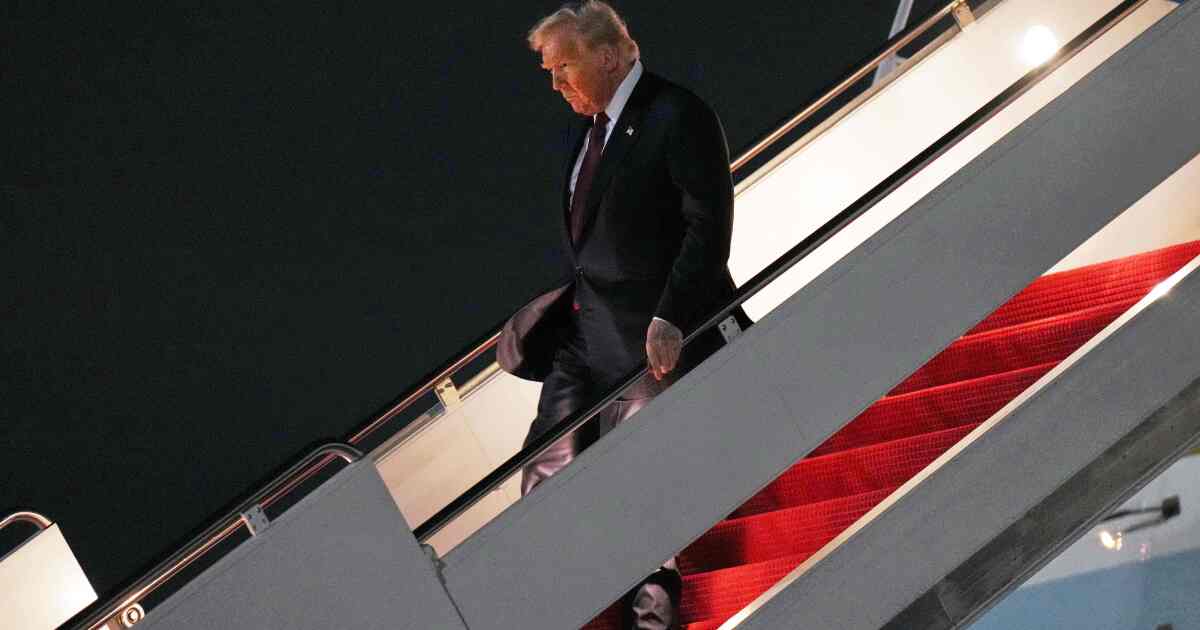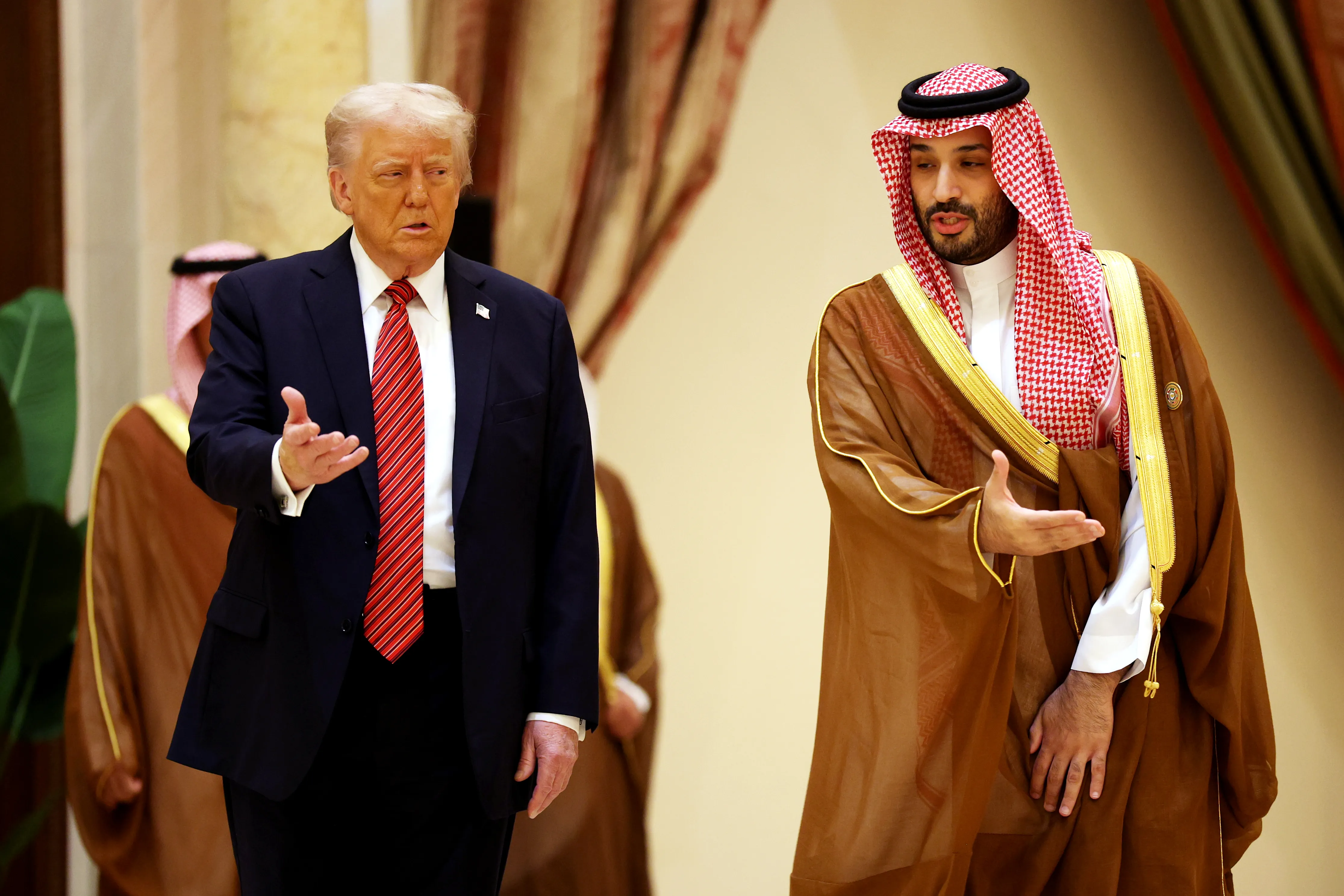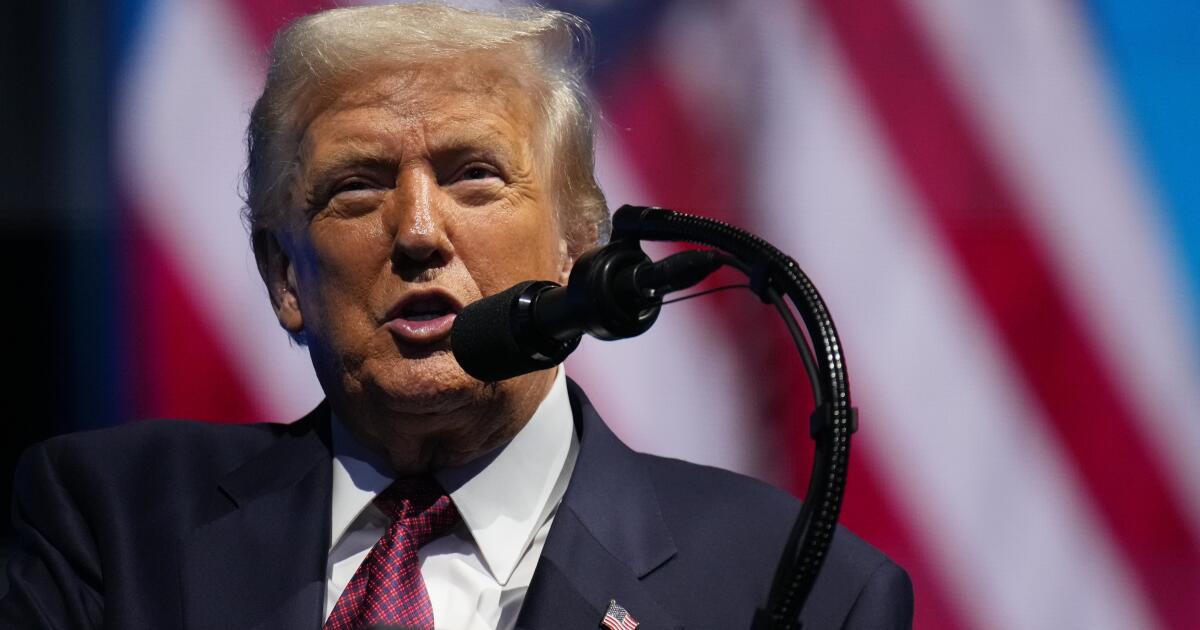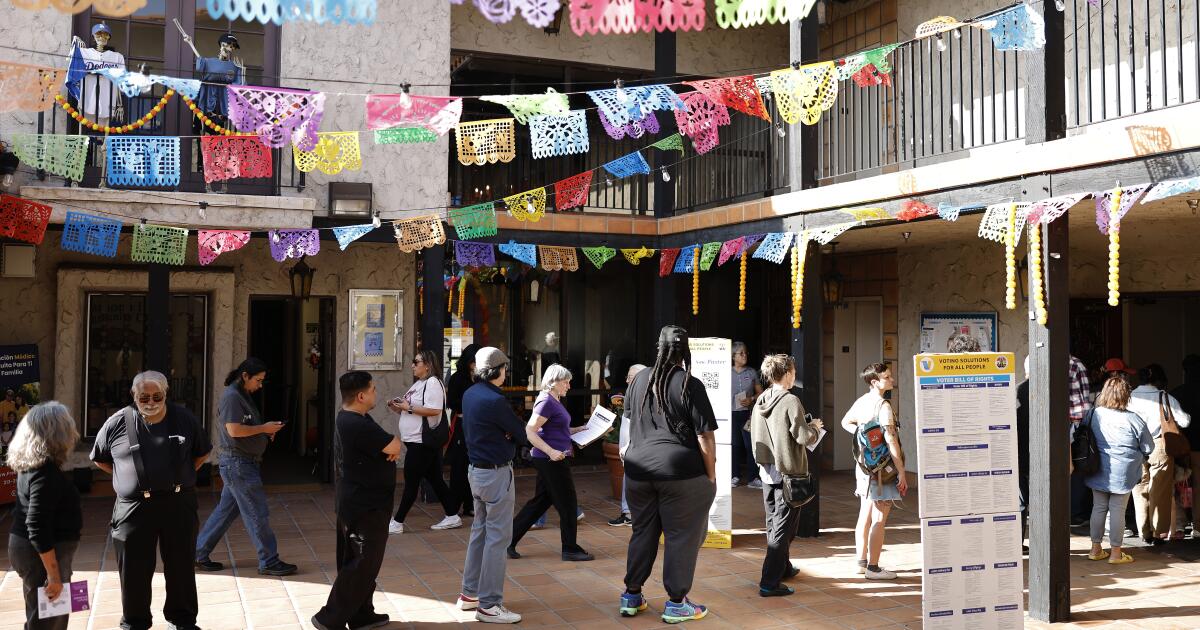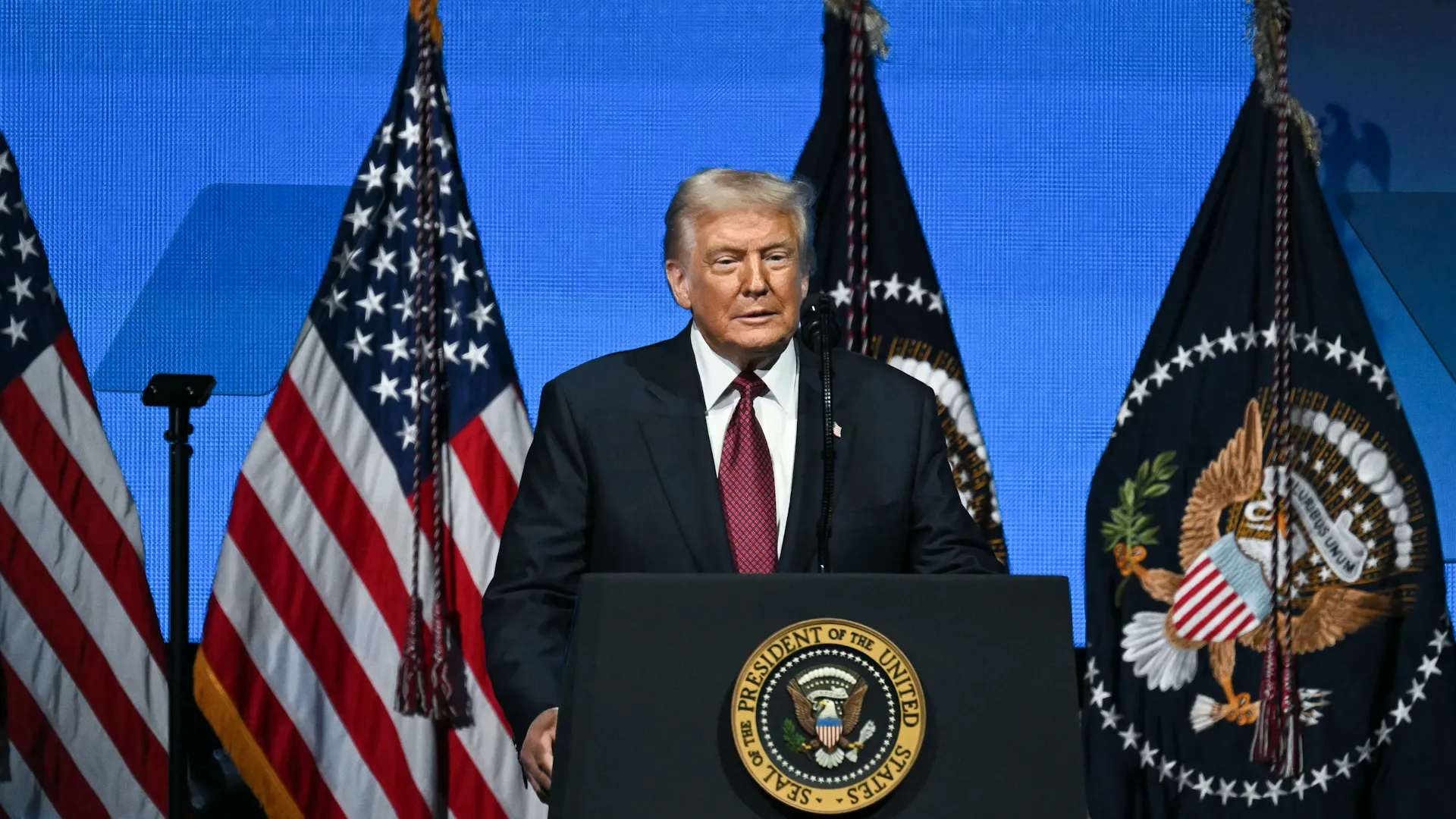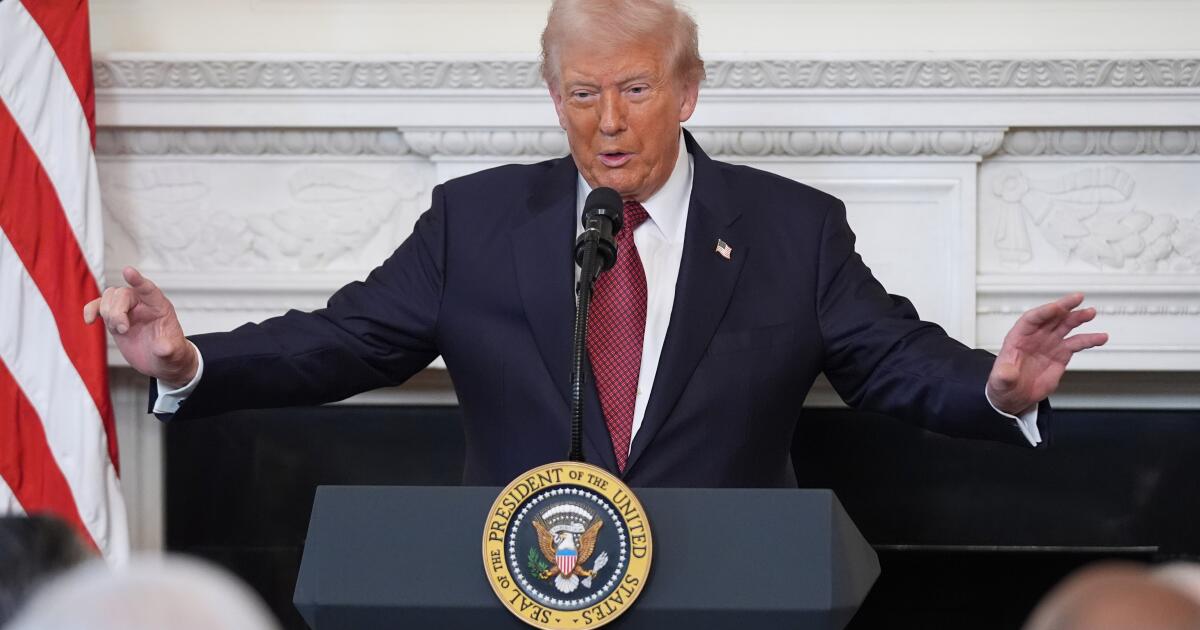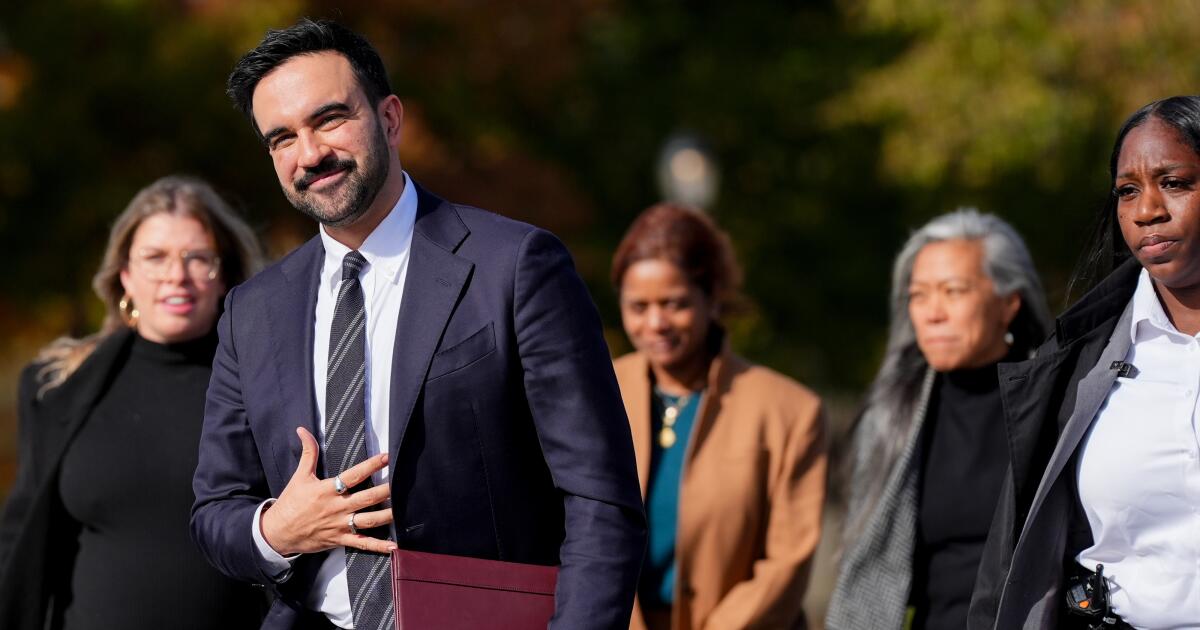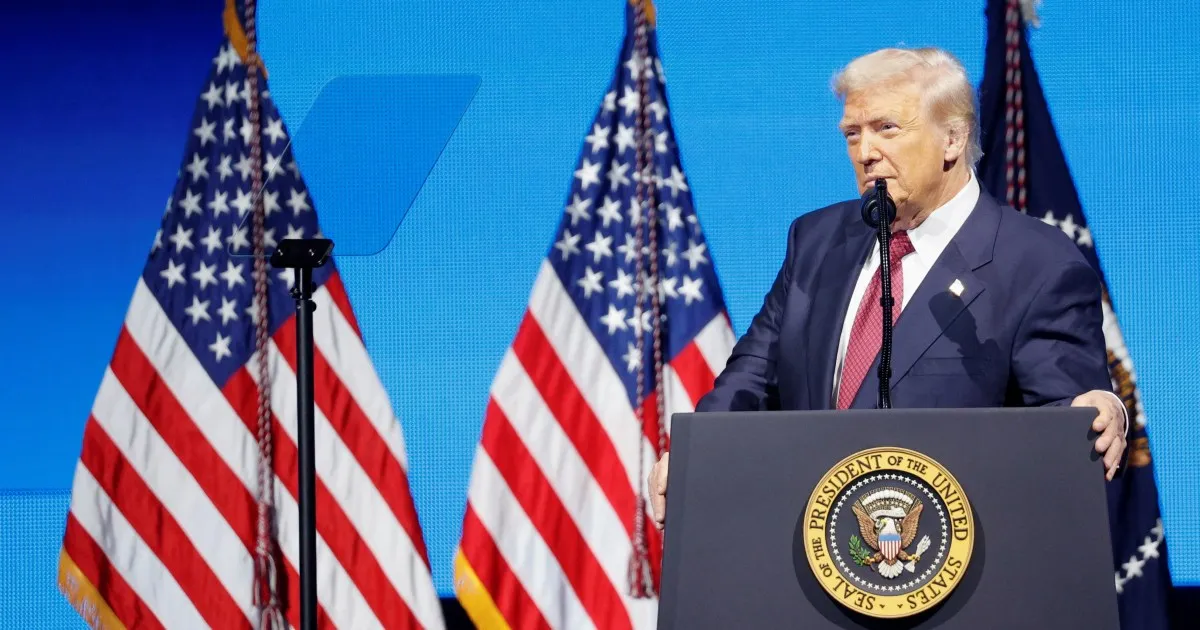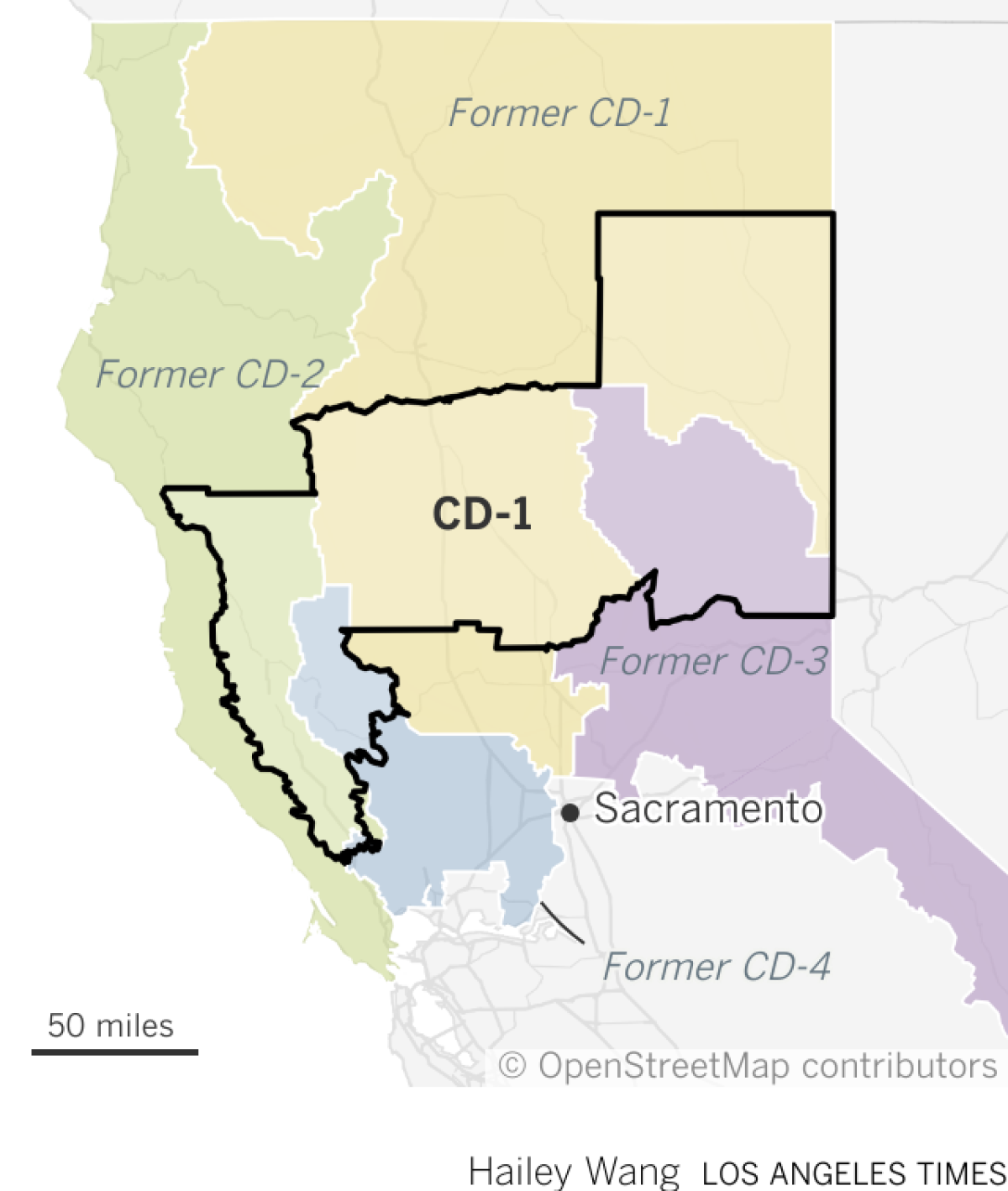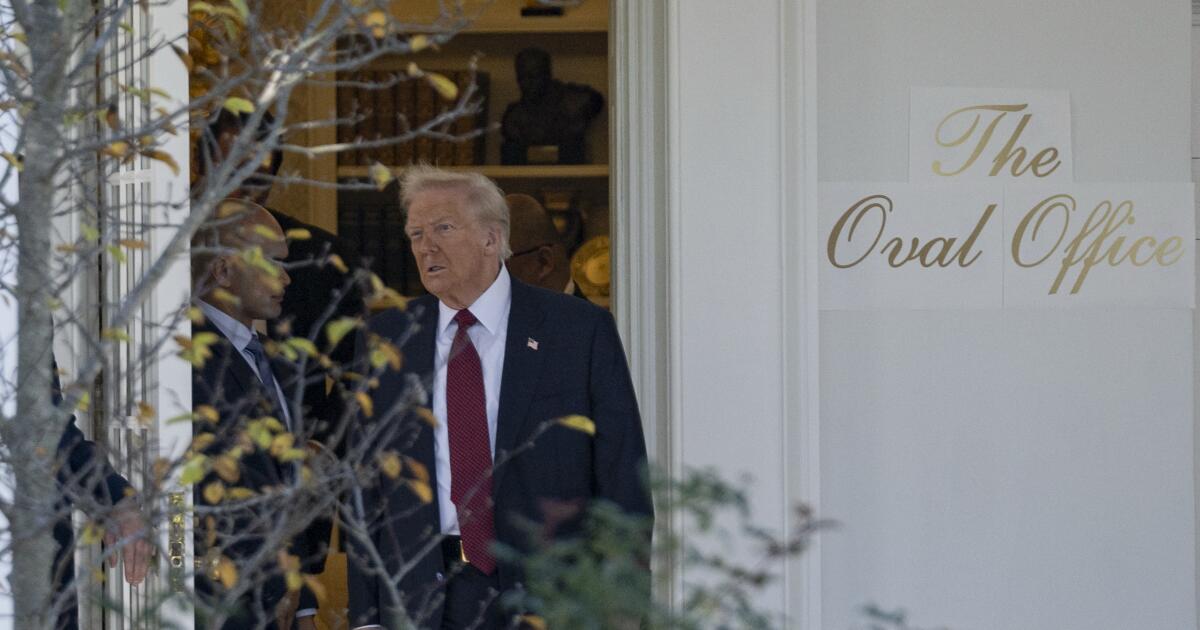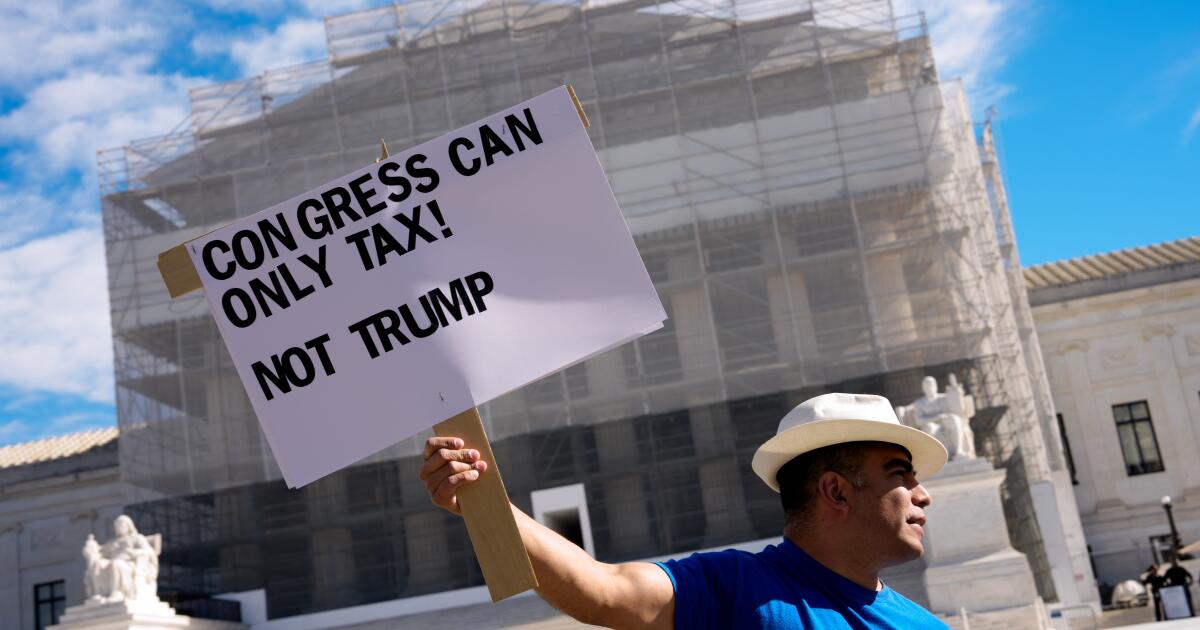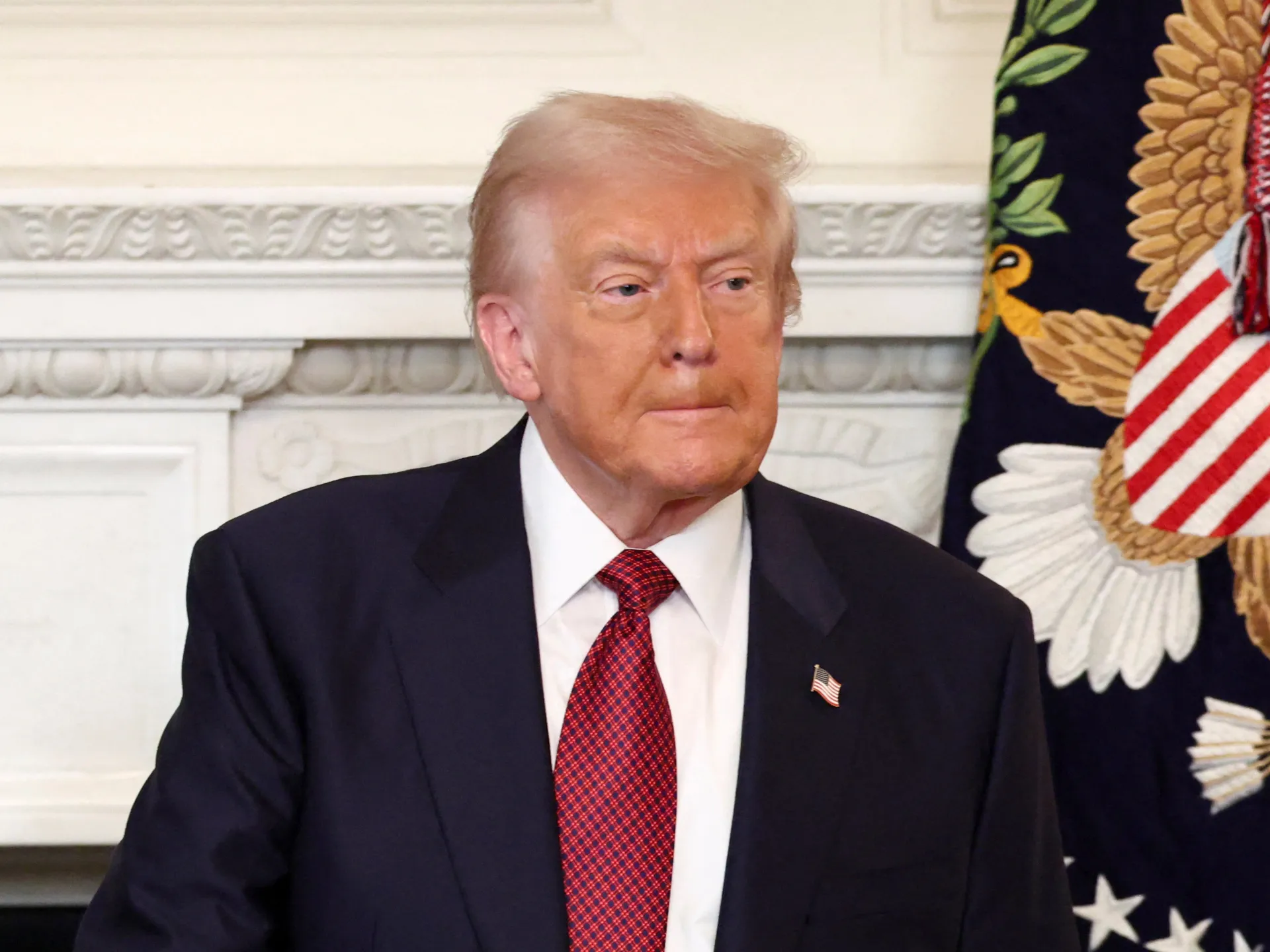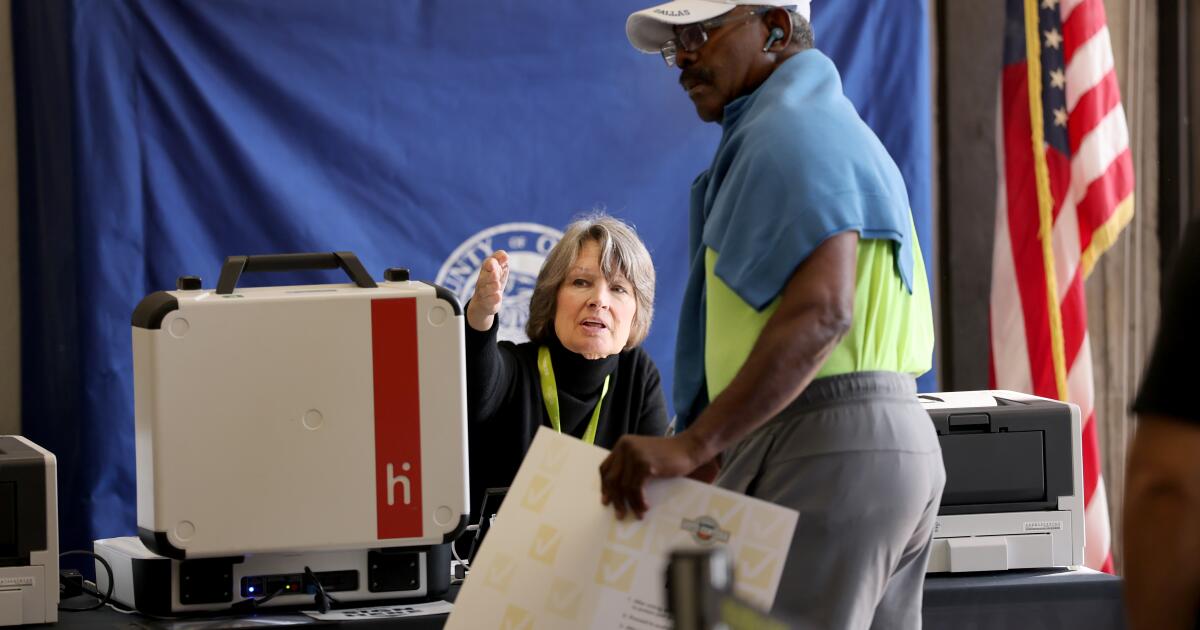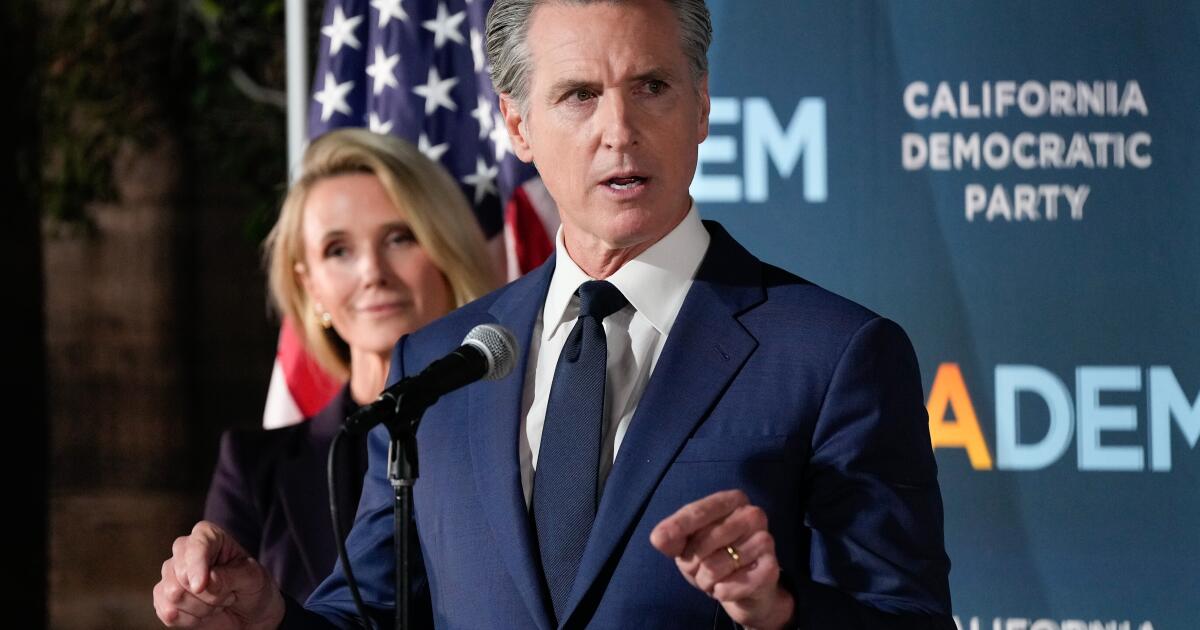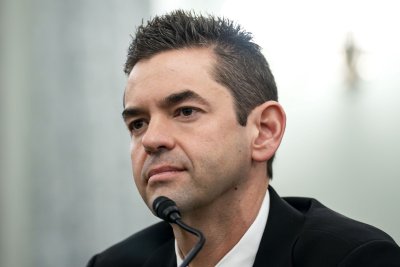California Republicans in Congress are vastly outnumbered by their Democratic counterparts in the state — and it may get worse.
Five of the nine GOP seats are at risk after California voters passed Proposition 50 in Tuesday’s special election. The measure, put on the ballot by the Democratic-led state Legislature, reshaped California congressional districts in a way that was specifically designed to unseat Republican incumbents.
The new maps target areas held by Reps. Kevin Kiley and Doug LaMalfa in Northern California, Rep. David Valadao in the Central Valley, and Reps. Ken Calvert, Young Kim and Darrell Issa in Southern California. The radical reconfiguration not only put Republicans in danger, but probably protects vulnerable Democratic officeholders by adding more voters from their own party into their reconfigured districts.
Already, California’s Republican members hold just nine seats in the U.S. House of Representatives, while Democrats have 43.
Proposition 50’s passage also sets off an intraparty fight for a newly created Republican seat in Riverside and Orange counties, which will pit two GOP incumbents against one another — Calvert of Corona and Kim of Anaheim Hills — knocking one of them out of office. Calvert and Kim on Wednesday announced they planned to run for that seat.
“With the passage of Prop. 50, Californians were sold a bill of goods, allowing [Gov.] Gavin Newsom and his radical allies in Sacramento an unprecedented power grab to redraw the Congressional map and silence those who disagree with his extreme policies,” Calvert said in a statement.
Newsom and other Democratic leaders argue that redistricting, which normally happens once a decade by an independent commission, was necessary after GOP leaders in Texas redrew their own congressional districts — at the request of President Trump — in a bid to add more seats for their party and retain Republican control of the House.
The passage of Proposition 50 will boost Democratic efforts to win control of the House after the 2026 election, a victory that likely would stifle parts of Trump’s agenda and open the president and his administration to a litany of congressional investigations.
Proposition 50 is expected to exacerbate the political isolation that millions of Republicans in California already feel, especially in the state’s vast northern and inland territories, and conservative suburban enclaves.
Trump won 38% of the presidential vote in California last year. About a quarter of the state’s registered voters are Republicans. Yet, Democrats have held every statewide office since 2011, and have an iron grip on the California congressional delegation.
Some California Republicans may be left asking: “Who in Congress is representing our views and who do we turn to?” said Mark Baldassare, survey director of the nonpartisan Public Policy Institute of California.
Cook Political Report, which tracks elections, changed 11 California congressional district race ratings Tuesday, with all but one district moving in Democrats’ favor.
Political consultant Rob Stutzman remains skeptical that Democrats will win all five congressional seats targeted by Newsom in the 2026 midterm elections. Some of the GOP representatives have deep roots in the community and have survived past challenges by Democrats, Stutzman said.
Newsom and others “may have overpromised what Prop. 50 could do,” Stutzman said.
Here are the top six Republicans whose districts were changed by Proposition 50 and who may find their political future at risk.
Rep. Doug LaMalfa (R-Richvale)
In Northern California, LaMalfa appears likely to run in one of two redesigned districts: One that stretches toward Mendocino National Forest and south toward Santa Rosa, or another that runs along the Oregon border and down the coast to the San Francisco Bay Area.
His current district, which spreads across the deeply conservative northeast corner of California to the Sacramento suburbs, was carved up by Proposition 50 and replaced with three districts that favor Democrats.
“They’re not going to kidnap my district here without a battle,” LaMalfa, 65, said Tuesday.
Democrats running for Congressional District 1’s seat — the seat that includes Mendocino National Forest — include Audrey Denney, an education director who unsuccessfully challenged LaMalfa in 2018 and 2020.
Rep. Kevin Kiley (R-Rocklin)
Kiley’s new district takes in neighborhoods in and around Sacramento, pulling in Democratic voters and losing former Republican communities along the Nevada border.
He hasn’t said which district he’ll seek.
“My current district is split six different ways,” Kiley, 40, said Wednesday. “In that sense, I have a lot of options.”
On Tuesday night, he promised to “work across party lines to find a national solution to the age-old plague of gerrymandering, and in particular, to the more recent affliction of mid-decade gerrymandering.”
Rep. David Valadao (R-Hanford)
Valadao’s predominantly Latino district in the Central Valley extends north post-Proposition 50, gaining more registered Democrats.
Still, more Democratic voters doesn’t necessarily translate to a Democratic victory, given the conservative attitudes in the region. A dairy farmer, Valadao, 48, has survived past challenges, in part due to poor turnout among Democrats and his popularity among moderate voters in the Central Valley.
Among those who have announced their intention to challenge Valadao is Visalia school board trustee Randy Villegas, a Democrat.
Valadao was among the few Republicans who voted to impeach President Trump following the Jan. 6, 2021, attack on the U.S. Capitol by Trump supporters, increasing his appeal to Democratic voters. But he could also be vulnerable because of his support for Trump’s “Big Beautiful Bill,” which cut medical benefits for roughly two-thirds of his constituents. The representative argued his district will get concessions for rural hospitals, water infrastructure and agricultural investments in the legislation.
A Valadao spokesperson didn’t immediately respond for a request for comment Tuesday night.
Rep. Ken Calvert (R-Corona) and Rep. Young Kim (R-Anaheim Hills)
Nearly all of Calvert’s district was moved north, and now takes in the Los Angeles County communities of Pomona, Ontario and Fontana.
However, Calvert, 72, announced he would run for the newly formed 40th Congressional District, which includes western Riverside County and eastern Orange County, including his hometown of Corona, as well as Murrieta and Mission Viejo. It’s a strongly Republican district now shared by Republican colleague Kim of Anaheim Hills.
“Californians in the newly drawn 40th District deserve a proven conservative they can trust and a fighter who has delivered results for Riverside and Orange County for decades,” Calvert said in a statement Wednesday. “No one else comes close to my record of service to the new 40th. I’ve lived here my entire life and already represent the majority of this district in Congress.”
Calvert praised Trump’s economic record and efforts to “secure our borders,” a direct appeal to the president’s MAGA base living in the region.
Michael Moodian, public policy researcher at Chapman University, expects Calvert will face a “tough fight” with Kim in the 2026 election.
Calvert is the longest-serving Republican member of California’s congressional delegation and is well known among voters in the area, while Kim is a strong fundraiser and has a moderate tone given that her current district is politically divided, Moodian said.
Kim, 63, one of the first Korean American women elected to Congress, last year won a third term.
Kim on Wednesday boasted that she was one of the most prominent Republican fundraisers in Congress and had a proven record of winning tough races.
“I’m running because California needs proven fighters who will stand with President Trump to advance a bold America First agenda that restores law and order in our communities, strengthens our national security, and protects the American Dream for future generations,” Kim said in a statement.
Calvert has survived previous redistricting rounds, including in 2021, when the overwhelmingly liberal Palm Springs — the first city in the nation to elect an all-LGBTQ+ city council — was added to his district and the Republican-heavy Temecula was taken out.
In 2024, Calvert fended off former federal prosecutor Will Rollins, besting the young Democrat 51.7% to 48.3%.
Rep. Darrell Issa (R-Bonsall)
Post-Proposition 50, Issa’s Republican stronghold in Southern California becomes more narrowly divided among Democrats and Republicans and gets a larger share of Latino voters. Like Calvert and Kim, Issa may decide to run in the new Republican-majority seat in Riverside and Orange counties.
“California is my home,” Issa said Tuesday night. “And it’s worth fighting for,”
He called Proposition 50 “the worst gerrymander in history” and vowed to continue to represent “the people of California — regardless of their party or where they live.”
Issa, 72, lost a legal challenge last week over the new maps, which he sought to block.
According to the complaint filed in federal court, Issa claimed he would be harmed because he would lose “seniority advantages in committee proceedings” and have “reduced influence over legislative priorities and committee work affecting my constituents,” NBC7 in San Diego reported.
Democratic San Diego City Councilmember Marni von Wilpert and perennial candidate Ammar Campa-Najjar are among those challenging Issa in his new seat.
